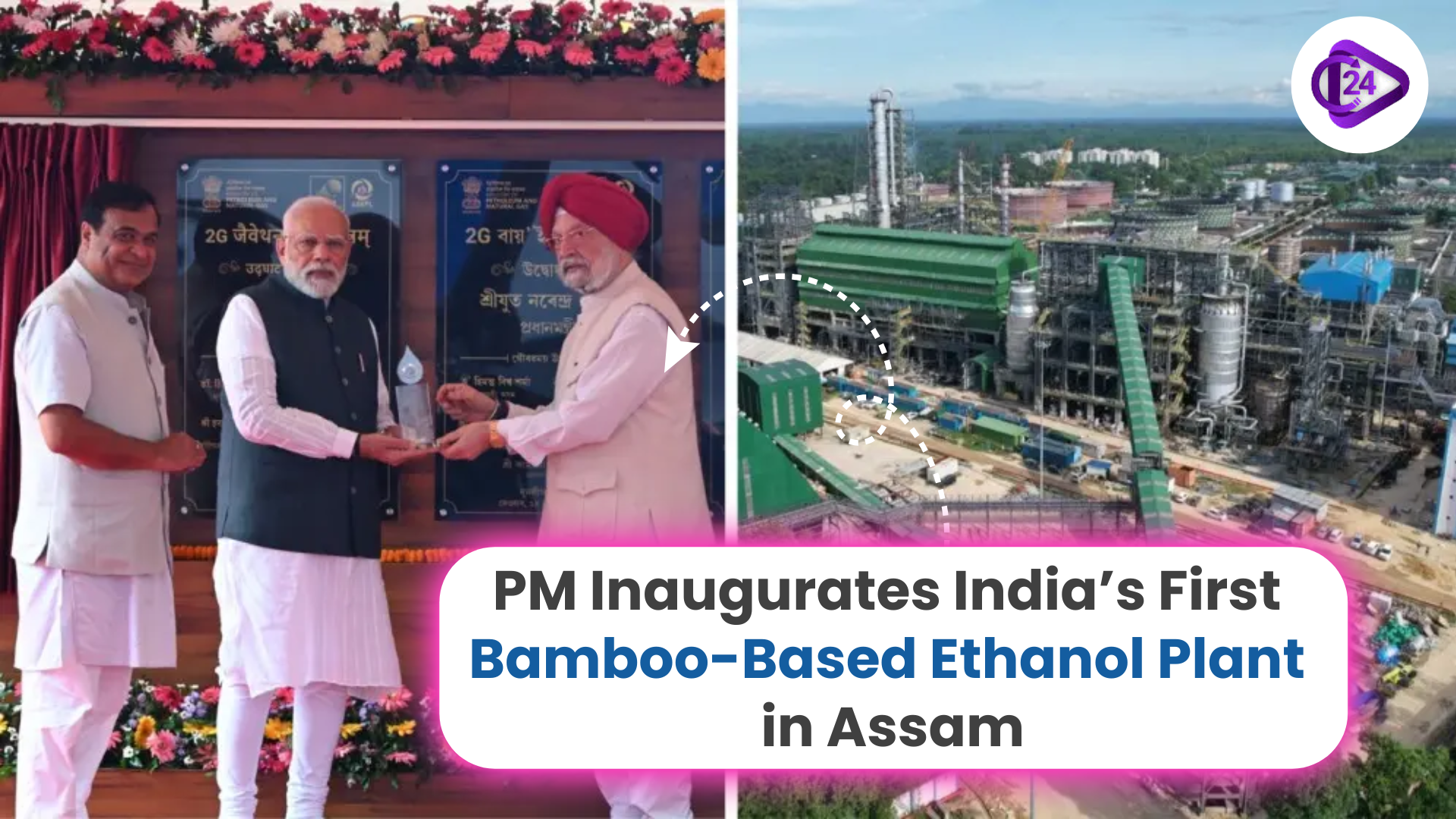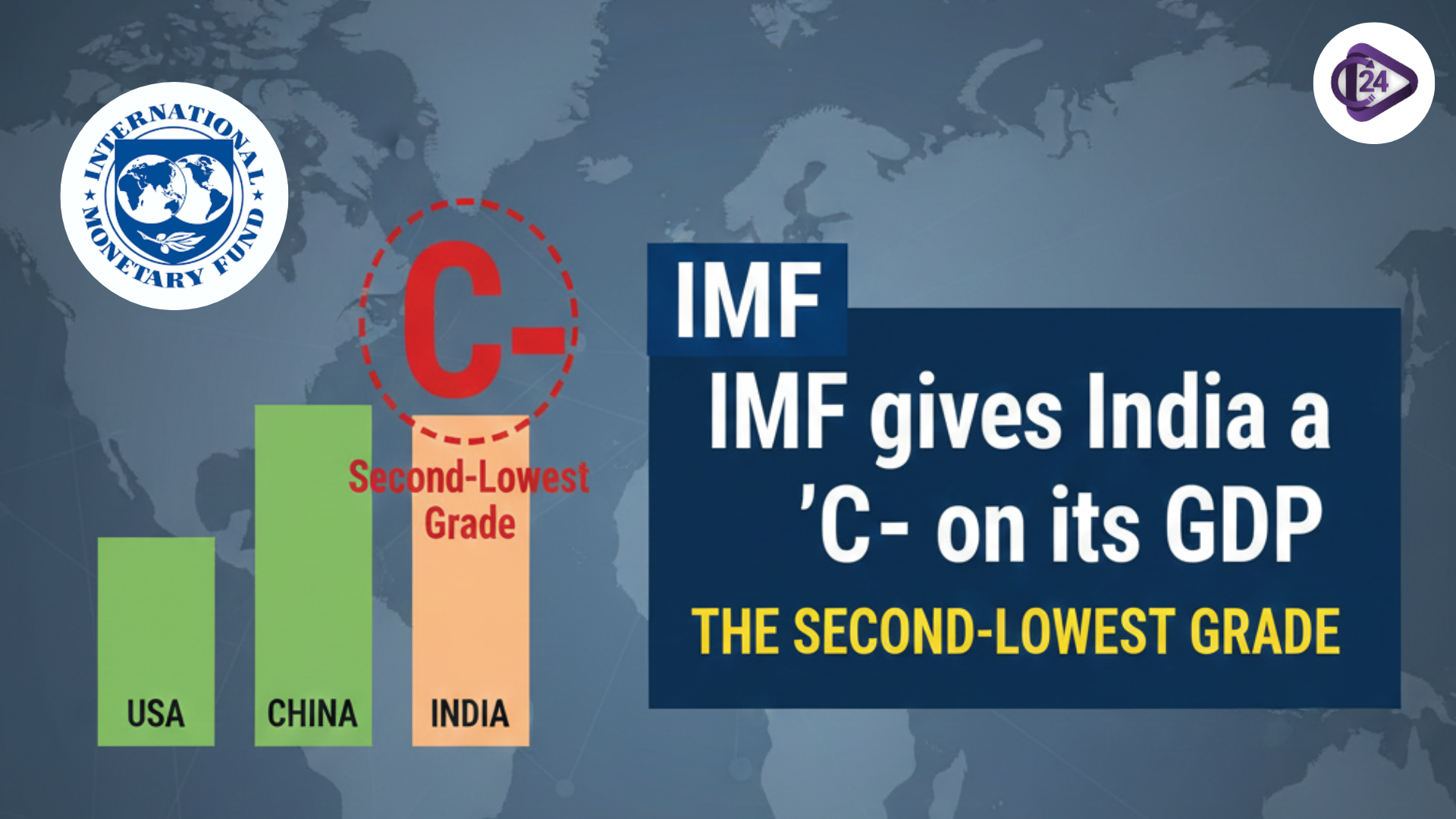
On 14 September 2025, the first ethanol plant made of bamboo was opened in Golaghat, Assam, by Assam Bio-Ethanol Private Ltd. (ABEL) with Numaligarh Refinery Limited (NRL). The plant is projected to be the first green bamboo ethanol plant in the world with the aim of encouraging clean power, energy independence and the independence of India to rely on fossil energy. PM Modi also inaugurated a 7,230-crore polypropylene plant in the area which boosted the industrial and energy capabilities of Assam. One of the advantages projected to come with the ethanol project is to the local farmers and tribal communities, reinforcement of the rural economy, and enhancement of energy security of India.
Key Points in Detail
About the Plant
-
Name: Assam Bio-Ethanol Private Ltd. (ABEL).
-
Location: Golaghat, Assam
-
Investment: 5000 Crore ( bioethanol plant )
-
Significance: World’s first zero-waste bamboo-based ethanol facility
Products:
-
48,900 tonnes of ethanol
-
11,000 tonnes of acetic acid
-
19,000 tonnes of furfural
-
31,000 tonnes of liquid carbon dioxide of food grade.
-
Raw material sourcing: 5 lakh tonnes of green bamboo each year of Assam, Arunachal Pradesh, and other states of the northeast.
-
Joint Venture: NRL, Fortum and Chempolis OY, in Finland.
Objectives and Benefits
-
Encourage renewable energy and clean energy.
-
Decrease the reliance on fossil fuels and imports.
-
Stakeholder to the Indian energy security.
-
Economic gains: 200-crore rural Assam economy scoop.
-
Pro-local community: The government buys bamboo and this generates jobs.
-
Promotes the development of industries in Assam due to the close-by nature of the intended polypropylene factory.
Energy and industrial strategy
-
PM Modi emphasized energy independence as a part of Viksit Bharat vision in India.
-
In diversified energy strategy:
-
Concentrate on the exploration of hydrocarbons (deep-water exploration too)
-
Green energy (solar and biofuels) Promotion.
-
-
The policies of the BJP government helped to use bamboo:
-
Removal of previous ban on bamboo cutting
-
Bamboo reclassified from tree to renewable resource
-
Polypropylene Project
-
Investment: ₹7,230 crore
-
Will work together with the ethanol plant at Numaligarh Refinery.
-
They were created to supplement the development of Assam on energy and chemicals.
Significance
-
Environmental: First world green ethanol plant built utilizing bamboo.
-
Energy security: Makes India energy self-reliant.
-
Socio-economic: Increases rural economy and tribal livelihoods.
-
Strategic industrialization: Makes Assam an energy and chemical centre.
-
Policy effect: Indicates the concern with renewable energy and the environmentally-friendly usage of the local resources.
Conclusion
The Golaghat bamboo ethanol plant will mark the beginning of clean energy policy and industrial policy of India. It shows the preoccupation of the government with energy self-sufficiency, rural development and sustainable usage of resources. In the case of UPSC, this is an emphasis on Indian renewable energy efforts, the development of the northeast of the country, and the policies to serve the local people.



 RBI Retains SBI, HDFC Bank, and ICICI Bank as Domestic Systemically Important Banks
RBI Retains SBI, HDFC Bank, and ICICI Bank as Domestic Systemically Important Banks IMF gives India a ‘C’ on its GDP and other national accounts data, the second-lowest grade
IMF gives India a ‘C’ on its GDP and other national accounts data, the second-lowest grade India Witnesses Rapid Surge in Ultra-Processed Food Consumption
India Witnesses Rapid Surge in Ultra-Processed Food Consumption HDFC Bank Secures the Top Rank in India’s 2025 Brand Value Index
HDFC Bank Secures the Top Rank in India’s 2025 Brand Value Index ASSOCHAM New President Nirmal Minda to Drive Industrial Innovation and Sustainability in India
ASSOCHAM New President Nirmal Minda to Drive Industrial Innovation and Sustainability in India 8th Pay Commission 2025: Latest News, Salary Hike & DA Update
8th Pay Commission 2025: Latest News, Salary Hike & DA Update Sonali Sen Gupta Takes Charge as RBI Executive Director
Sonali Sen Gupta Takes Charge as RBI Executive Director Shram Shakti Niti 2025: India’s Future-Ready Labour Policy for Employment Growth
Shram Shakti Niti 2025: India’s Future-Ready Labour Policy for Employment Growth Secure UPI Transactions: RBI and NPCI Introduce Biometric Authentication
Secure UPI Transactions: RBI and NPCI Introduce Biometric Authentication Shirish Chandra Murmu Appointed as RBI Deputy Governor
Shirish Chandra Murmu Appointed as RBI Deputy Governor






